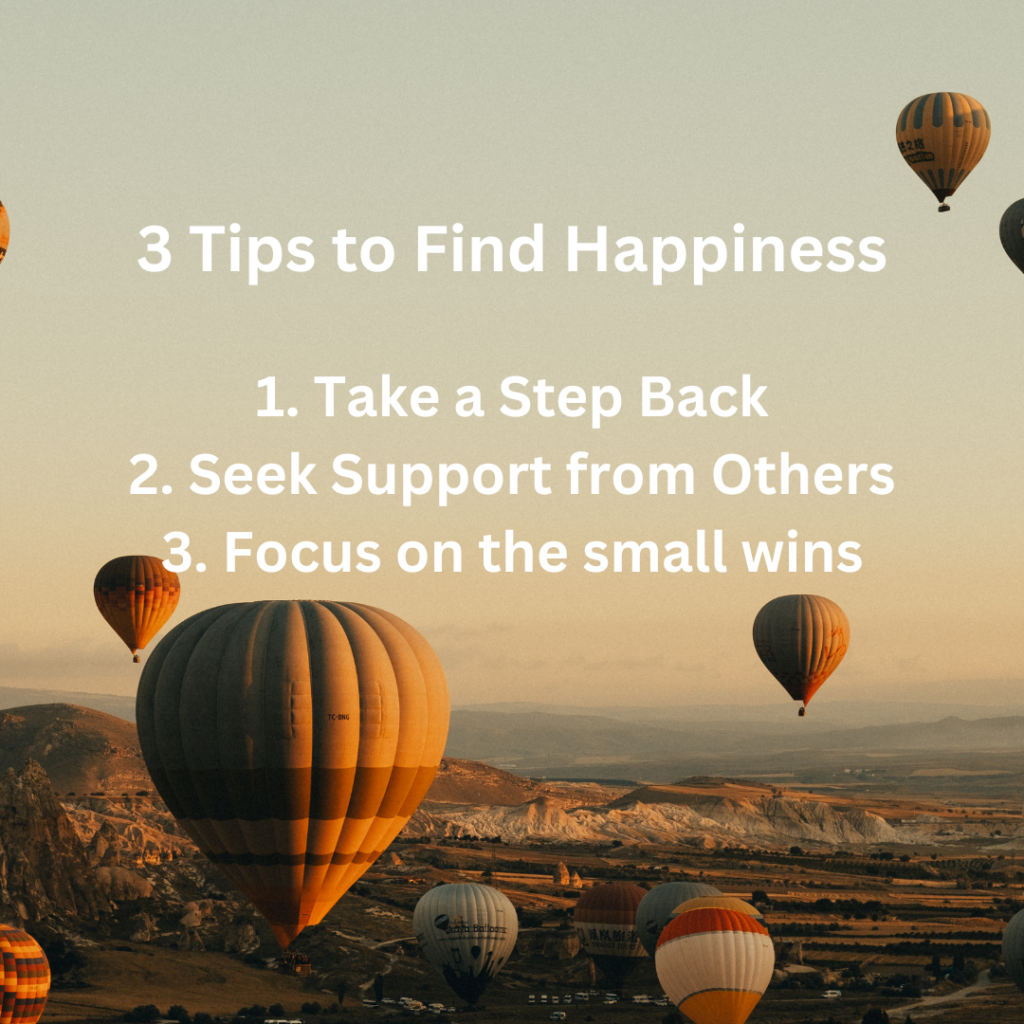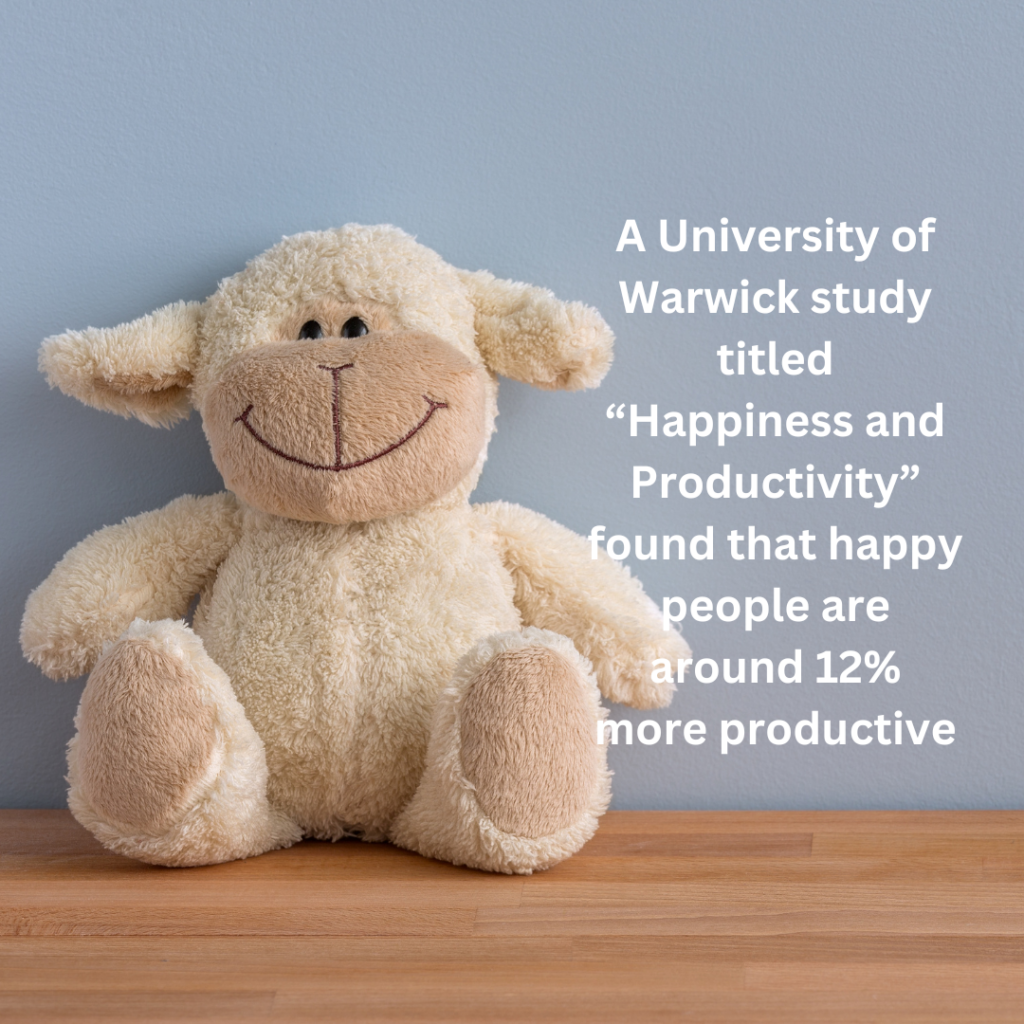Valentine’s Day is associated with romance and the joy of loving. Even so, love is not just about relationships with others. It is also about how people relate to their job. Finding happiness in your career and loving what you do is a transformational experience, both at work and in life.
That said, it is unrealistic to expect that every moment behind the desk sparks joy. Cultivating happiness in one’s job is possible nonetheless. This isn’t about a dream role that magically aligns with one’s values. Rather, it is about unleashing one’s genius mindset, small changes, and an understanding of what is fulfilling for the person.
A job is about a lot more than a paycheck. It’s about your dignity. It’s about respect. It’s about your place in your community. -Joe Biden, 46th President of the USA
|
Author: Aaron Ngui |
Why Is It Important to Find Happiness in Your Career?
Happiness in your career goes beyond just having a positive attitude. Feeling uplifted directly impacts productivity, creativity, and even health. Approaching work with a smile on the face and laughter in the heart benefits organizations and the people working inside.
Boosts productivity
Happy employees are productive employees. There are studies that consistently show people who enjoy their work are more engaged and efficient. When you find purpose and satisfaction in your career, you are in a better position to build rapport and become more motivated to perform to the best of your abilities.
Another side effect of being happy at work is minimizing procrastination. Think about it, people who are stressed or uninspired often put off work as they deal with the inner turmoil. The antidote is happiness. Being happy creates a mental state that fosters focus and resilience, helping you tackle tasks more effectively.
Enhances creativity and problem-solving
Happiness fuels creativity. People who feel positive tend to be more open to new ideas. They are willing to take calculated risks that could pay off handsomely. This mindset is especially important in industries that require innovation and adaptability.
For example, a marketing professional who enjoys their work is more likely to think outside the box, generating fresh campaign ideas compared to someone bogged down by negativity. Joyful energy is a potent catalyst for groundbreaking work. After all, being flexible is crucial to thrive in challenging times.
Supports physical and mental wellbeing
Unhappiness at work doesn’t just stay at the office; health is potentially impacted as well. Stress from an unfulfilling job can lead to burnout, anxiety, and even physical illnesses. On the other hand, happiness helps reduce stress levels and improve overall mental and physical health.
An enjoyable career is energizing, improves confidence, and creates a positive ripple effect in other areas of life for holistic mental health and wellbeing.
Your job is not just to do what your parents say, what your teachers say, what society says, but to figure out what your heart calling is and to be led by that. – Oprah Winfrey, award-winning host and television producer
Read more: Employee Wellbeing in the Workplace – Practical Strategies
How Can People Find Happiness in their Career?
Finding happiness in one’s career requires intentional effort. It’s about taking 100% responsibility for your thoughts and actions. It’s not about waiting for the perfect job to magically land in the inbox or on the lap. Rather, people who are happy at work intentionally create joy through purpose, passion, and mindset shifts.
-
Discovering career purpose and meaning
An effective approach to discover purpose in career is asking the question, “What makes you wake up every morning and go to work?” Reflecting on this, thinking of the values that align with what you do forms the responses that will support you and others to find purpose.
Further questions to ponder include:
- What kind of impact do I want to make?
- What brings me the most satisfaction in my work?
- What is the meaning in doing what I do?
For instance, the purpose of an educator may be to inspire future generations for greatness. Once this individual identifies this as their mission, they are motivated to take the required actions. This may include creating lessons based on the best practices of scientists/ writers; or ensuring the teaching approach is creative and engaging.
Aligning the daily tasks with larger goals infuses careers with meaning.
-
Infusing passion into your career and work
People sometimes use hyperbolic language when speaking about passion. However, passions are not always about big, flashy, gestures. Often they are found amidst the embers in finding joy in the little things when it relates to finding happiness in your career. People can do so by looking for tasks or projects that interests or excites them.
Take Sarah, she is an administrative assistant who felt that her function was at too low a level to make big impact in her organization. However, a conversation with the in-house coach who was well known for helping others lead a fulfilling life trigger her to turn her mindset around.
She discovered that not only was she good in organizing company events, but she was also passionate about being actively involved in their running. She felt good when people shared how they enjoyed the luncheons and off-site retreats. Instead of focusing on her limited authority, she found an avenue where she could bring positivity to others.
As Sarah grew more visible in this role, the management began to give her additional responsibilities related to talent retention. This paved the way for her to move up to a management position responsible for talent engagement. By focusing on aspects of her job that sparked joy, she turned routine work into something she looked forward to.
Passion is about identifying what lights up the heart and doing more of it whenever possible.
-
Building joyful habits
Can habits lead to happiness and joy?
Habits are demonstrated by the actions people take every day. In that sense, yes, the habitual actions people engage in daily can lead to happiness if they a grounded in positivity. The key here is: small, intentional actions repeated over time can create a big impact on people feel about their work.
Consider starting each day by listing three things that went well and can be thankful for. Close that positive loop at the end of the week by celebrating accomplishments, no matter how small. These habits train the brain to focus on the positives and can significantly boost the mood.
After all, change your habits, change your world – as many would say.
-
Shifting to the positives
It’s easy to focus on what’s wrong at work. This can be situations like tight deadlines or difficult coworkers. But happiness often comes from a shift in perspective.
Instead of dwelling on the negatives, try reframing situations. For example, a challenging client should be seen as an opportunity to grow patience and problem-solving skills.
Remember that positive thinking doesn’t mean ignoring problems; it means focusing on opportunities for development.
-
Tapping into gratitude
Gratitude, which is described as the Mother of All Virtues, is one of the most powerful tools for finding happiness. Being grateful shifts the focus from what’s missing to what’s already present.
It is good practice to set aside time reflect on what is good work. Maybe it’s the supportive colleague or the satisfaction of completing a tough project. Practicing gratitude regularly makes even the most stressful days feel a little brighter.
An effective approach is to keep a gratitude log. This is when the individual record experiences they are thankful for. These acts may be as simple as enjoying an ice cream at the park, or as big as gaining the vice president promotion.
Doing this serves two goals. The first is that it makes people more aware of things that went well for them and to be grateful. The second is, this diary offers a comforting reminder of the good things whenever a boost is needed.
Be happy with what you have while working for what you want. – Helen Keller, disability rights advocate
What to Do When Happiness Feels Hard to Find?
Even with the best intentions, some days or seasons at work can feel draining. When finding happiness in your career feels elusive, consider applying these steps:
- Take a step back. Sometimes, people just need to pause and reassess. Does the job align with your values? Self-reflection can provide clarity on what’s missing.
- Seek support. Don’t hesitate to reach out to mentors, friends, or even professional coaches. Talking through your challenges help people to gain a fresh perspective.
- Focus on small wins. When joy feels far away, focus on achievable goals. Completing even a small task can is a good approach to reignite the sense of accomplishment.
Read more: Life Coaching – Key to Finding Purpose & Fulfillment

Tips for finding happiness in your career
Happiness In Your Career Is a Journey, Not a Destination
Finding happiness in your career is not about reaching a single, perfect state of nirvana. The process evolves with time and is shaped by mindset, experiences, lessons, and growth. Being aware that there will highs and lows helps in addressing uncertainties.
Happiness comes from navigating the ebbs and flows while staying in alignment with what’s important to the individual.
Happiness at work is about cultivating a sense of fulfillment and purpose that anchors people through the challenges. When individuals focus on discovering their purpose, infusing passion into what they do, and maintaining a positive mindset, they create a solid base for lasting joy. These aren’t quick fixes but habits that transform how people experience their career.
On the days when the going gets tough, feel free to reframe these as opportunities to recalibrate, reflect, and reconnect with things that bring happiness. Even small actions, like acknowledging one thing you’re grateful for or reaching out to a supportive colleague, can make a difference.
Putting this means adopting a responsibility mindset. These are individuals who takes full responsibility for results in work and life. By focusing on what truly matters, people at all stages of their careers can create a work life that feels fulfilling, and not just on special occasions but every day.
If it falls your lot to be a street sweeper, go out and sweep streets like Michelangelo painted pictures. Sweep streets like Handel and Beethoven composed music. Sweep streets like Shakespeare wrote poetry. Sweep streets so well that all the hosts of heaven and earth will have to pause and say, here lived a great street sweeper who swept his job well. – Dr. Martin Luther King, Jr., human rights activist
(Note: For those who are interested, please check out a full list of happy work quotes here!)
Other resources you might be interested in:
- Fish Philosophy: Creating a Joyful & Productive Workplace
- Transformational Leadership: Inspiring Change & Growth
- Self Leadership: The Art of Leading from Within
- Leadership Branding: Crafting an Inspiring Personal Identity


